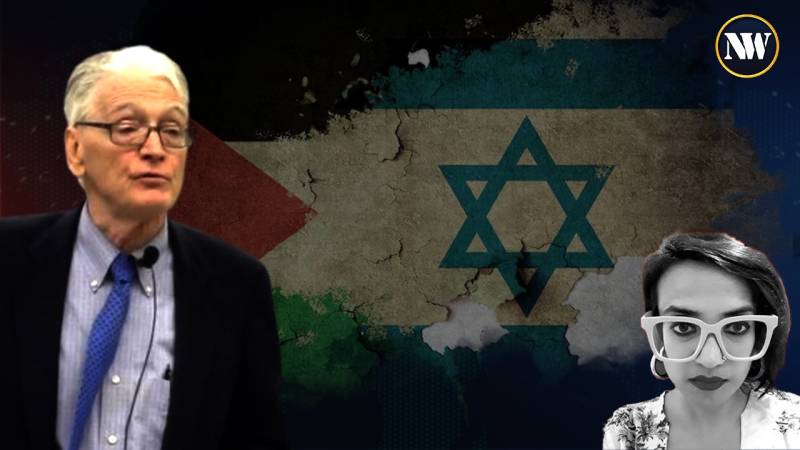The recent interim ruling by the International Court of Justice (ICJ) has emerged as a beacon of hope, albeit amidst a landscape rife with complexities and challenges.
At the forefront of this discourse is Professor Francis Boyle, a towering figure in the realm of international law and a beacon of insight into the legal intricacies surrounding the Palestine-Israel conflict. In a candid interview, Professor Boyle sheds light on the implications of the ICJ's interim ruling and offers a nuanced perspective on the path forward.
The conversation begins with a reflection on the significance of the ICJ's ruling, announced amidst mounting international pressure and escalating violence in the region. Professor Boyle underscores the gravity of the situation, emphasizing the ICJ's role as the "world supreme court" in adjudicating matters of international law.
"It's not just another legal ruling," Professor Boyle asserts. "It's a reaffirmation of the principles enshrined in the Genocide Convention and a testament to the enduring pursuit of justice for the Palestinian people."
Delving deeper into the specifics of the ruling, Professor Boyle elucidates the provisional measures mandated by the ICJ, particularly in response to South Africa's case against Israel. He dissects the legal nuances of the ruling, highlighting the court's assertion of a "plausible risk" of genocide in Palestine and the imperative of halting hostilities.
"The ICJ's ruling goes beyond mere condemnation," Professor Boyle explains. "It represents a legal imperative to cease from acts of genocide, signaling a watershed moment in the quest for accountability."
However, as the conversation unfolds, a sobering reality emerges – the gap between legal injunctions and on-the-ground realities. Despite the ICJ's call for cessation of hostilities, reports of continued bombings in Gaza cast a shadow of doubt on the efficacy of legal mechanisms in stemming the tide of violence.
"It's a sobering reminder of the limitations of legal pronouncements in the face of entrenched geopolitical interests," Professor Boyle laments. "While the ICJ's ruling carries moral weight, its enforcement ultimately hinges on global cooperation and political will."
Amidst the discourse on legal avenues for justice, Professor Boyle issues a clarion call to nations like Pakistan to consider legal recourse at the ICJ, leveraging the power of international law to hold Israel accountable for genocide. Drawing parallels with his own experiences representing Bosnia Herzegovina against Yugoslavia, he underscores the transformative potential of legal activism in confronting systemic injustices.
"The ICJ offers a platform for the voiceless to seek redress and demand accountability," Professor Boyle asserts. "It's incumbent upon nations like Pakistan to seize this opportunity and stand in solidarity with the Palestinian people in their quest for justice."
The conversation takes a turn as Professor Boyle addresses recent developments surrounding the suspension of UN funding to Palestinian agencies, allegedly linked to unsubstantiated allegations. With a blend of indignation and disbelief, he condemns these measures as a brazen act of complicity in furthering Palestinian suffering.
"The suspension of UN funding is not just a bureaucratic decision; it's a moral indictment of the international community's failure to uphold basic humanitarian principles," Professor Boyle asserts. "It's a stark reminder of the need for unwavering solidarity and principled action in the face of adversity."
As the interview draws to a close, Professor Boyle reflects on the broader implications of the ICJ's ruling and the imperative of collective action in addressing the root causes of the Palestine-Israel conflict. With a note of optimism tempered by pragmatism, he underscores the transformative potential of legal activism in shaping a more just and equitable world.
"In the pursuit of justice, there are no easy answers or quick fixes," Professor Boyle reflects. "But through steadfast commitment and unwavering resolve, we can pave the way for a future where the rule of law prevails and the rights of all peoples are respected."


